Posted: November 25, 2020
We collected voices from around the world on the church in the COVID-19 coronavirus pandemic. See below for respondent bios.
How are we learning new ways to do church due to pandemic restrictions?
“Now more than ever, various forms of technology have taken on an active role. They have become key to keeping the church together and in fellowship,” say Sergio and Paula Mendoza.
However, ongoing disparities are highlighted. “The church community has been hit by possibilities of leaving others behind – especially those who have been slow to embrace technology,” says Clement Ndlovu.
Nevertheless, congregations have found means to reach their members.
“In some areas, people have been encouraged to seek God individually on mountain tops and in their homes. Other people have been encouraged by radio and TV programs to seek God more than before,” says Nkunda John Bosco.
“Our Mennonite churches used WhatsApp to communicate with members. A new way of doing things was to call Christians regularly by phone to show them that the leaders were thinking of them,” says Siaka Traoré.
“Throughout the entire lockdown we were able to use many forms of technology to keep the youth meetings going and connect with the youth’s different realities”,” say Sergio and Paula Mendoza.
Even with the struggles, God is at work.
“Church work is more effective outside the four-walled structures as opposed to the modern way of conducting everything inside church buildings,” says Okoth Simon Onyango.
“Really, the changes that we have experienced during this time as a church have taken us beyond our comfort zone,” say Alba and David Irala. “However, technology enabled us to create new spaces with more sharing and participation than before. Through this we could see God using the difficulties and uncertainty to speak to us and affirm us in our faith. At the same time, we were able to strengthen our ties as a group.”
“We are learning to truly be a church; one that is not defined by a physical space but one body present in various places as we pursue the same goals and follow the same Jesus,” say Alba and David Irala.
What are the theological challenges of reliance on technology?
“There are some still in our communities who have no access to modern technology. In our rural areas, electricity is not accessible and television sets cannot be used either. So reliance on technology made the church’s work harder in some areas during the pandemic,” says Okoth Simon Onyango who walks many miles to stay in touch with church members.
The variety of options is also a challenge.
“I think our theological foundations have been shaken due to a great exposure to many teachings made available,” says Clement Ndlovu.
“In a way, being able to meet via ‘just one click’ converts the space for fellowship and living out our faith among fellow believers into just one more option on the menu of entertainment that the world offers us via digital platforms,” says Sergio and Paula Mendoza.
Yet, “with or without technology, Jesus Christ is our hope,” says Okoth Simon Onyango.
“The question at the beginning was how we could share the Lord’s Supper. Now we see that rather than be an insurmountable problem, sharing the communion symbolized in the Lord’s Supper breaks down barriers and makes us one. We have found peace as we have been faithful to this command despite the separation. In a sense, the distance has strengthened our theological and Biblical concepts,” say Alba and David Irala.
How has the church grown in this time?
Clement Ndlovu mourns the church’s lost spiritual influence on those without technological connection. However, “virtual worship has opened the church beyond her catchment areas.”
“It’s tough to measure growth especially spiritually, however the time itself we find ourselves in has sensitised the masses of the importance and value of life. We see people seeking divine intervention more now, both believers and non-believers. In terms of reach, we have gone beyond the norm; able to reach more people numerically and globally,” says Bryn M Maphosa.
“For certain Christians, it was a period of slackening, because there were no longer regular and official activities at the church: a time of spiritual sleep. On the other hand, for a number of Christians this pandemic was a sign of the end times and so some put their lives in order,” says Siaka Traoré.
Yet the Holy Spirit is working, compelling even those who are not known evangelists to share about God with their neighbours. “As I walked a long stretch three days a week for two consecutive months, I met other people also walking, and the subject of discussion was ever the same – ‘May God help us and remove this virus that has brought this suffering,’” says Okoth Simon Onyango. “Evangelism is at its peak: each one was encouraging the other to believe in God the Almighty for a supernatural act.”
“The growth that we have seen has been in quality. The quality is reflected in our attitudes toward the needs that have arisen. Brothers and sisters in the faith have responded to this pandemic through acts of service, and a new opportunity to serve our community has arisen,” say Alba and David Irala.
What does it mean to be a group of believers “centred on community” when we cannot gather in person?
“It demands that we think out of the box to still further our mission. The group of believers still needs to be seen and heard one way or another as it is the heart of the community,” says Bryn M Maphosa.
“The practice of Christianity can only be done by reaching out to others. Our Christian life is real when we are in community; however, gathering in person is not the only way. Our spiritual acts are not meant for public show,” says Okoth Simon Onyango.
“‘How good and pleasant it is when brothers live together in unity!’ (Psalm 133:1) ‘Let us not give up meeting together’” (Hebrews 10:25). We are used to this kind of worship, but the Bible is also encouraging us to have our prayers on our own because we are the temple of God and the Holy Spirit dwells in us,” Francis Kamoto.
“Adults and youth alike are eager to see one another soon. Even so, we know that it is necessary to respect the rules and we have found that our community is truly united,” say Alba and David Irala.
“It is possible to be in a shared space without a shared attitude. But now we are apart while we pay attention to one another’s needs and maintain constant contact through calls and online meetings,” say Alba and David Irala.
The distance forced by isolation or lockdown has reinforced what it means to be the church: “We encourage and exhort one another to be conscious of the situations that our own members are facing as well as the people around us. We see their need and look for ways to meet it. Through these actions we reflect the love of Christ and also demonstrate that we are believers who are committed to our community,” say Sergio and Paula Mendoza.
These changes: which do we hope are temporary? Which do we hope will remain after life goes “back to normal”?
“Without a doubt, we anxiously wait for the recommendation to keep our distance to be lifted. When that happens we will be able to hug again and show affection that is such a part of how we relate as believers. We especially desire the lifting of the restriction on meeting in churches so that once again we can worship together as the body of Christ,” say Sergio and Paula Mendoza.
But the hygiene practices are welcome to stay.
“They not only help with caring for ourselves, they also help us to care for others,” say Alba and David Irala.
“Hygiene practices protect us against many germs that we transmit from one to another. If we continue to wear masks in our context here, it protects us against dust and smoke pollution,” says Siaka Traoré.
He worries, however, about social distancing’s impact on “African socio-cultural values. African society expresses itself through relationships concretely, not virtually. In church, fraternal warmth is expressed through physical contact.”
“This period presents us with a number of lessons. The church has to learn to be intentional in her fellowship activities. The church’s teachings have to prepare the membership how to be the light and salt in difficult times. Learn the art of physical and virtual fellowship preparedness,” says Clement Ndlovu.
“Without a doubt, the pandemic has had positive effects too. It has challenged our definition of what it means to be church. Many thought of church as a physical space; now, however, our definition has deepened. We understand that being united and looking out for the needs of others through prayer and constant communication, then we are truly united and acting as a true church,” say Alba and David Irala.
“What I hope will be permanent: the requirement to be flexible when the need arises. The use of multimedia platforms is a great tool to be perfected to increase our global reach with the gospel,” says Bryn M Maphosa.
“I’ve been challenged to think more about the beauty of humanity, this idea of community cohesion. Look out for those who are low on resources. Go out to help,” says Sibonokuhle Ncube.
“The church continues in spite of the circumstances. We continue to practice ‘being church’ now more than ever. We are discovering that it is not the place that defines us,” say Alba and David Irala.
How has this time challenged us to rethink how we used to live? What lessons does this period hold for us?
“I think this has helped me to be flexible in doing things. Sometime we take things for granted that we do things in this way. We can worship God at any place at any time,” says Francis Kamoto.
“The church must not lose its relevance and favour in such a time as this. The church needs to adhere to the laws of the land. The church needs to have plenty of resources to intervene in the lives of its congregants and community where needs are identified. Innovation and change management are critical strategic elements to incorporate in our running of God’s business,” says Clement Ndlovu.
“This period has shown us the fragility of our medical, economic and even our governance systems. This pandemic has confirmed the idea that the world is a global family, because a disease that started at one place on earth was propagated throughout the entire planet,” says Siaka Traoré.
But it has demonstrated our capacity for solidarity amid fragility. “All sectors of society brought financial and in-kind contributions to combat the coronavirus pandemic. We discovered an internal potential of local resources that allow for common actions,” says Siaka Traoré.
“It has been a good contribution from the pandemic to say ‘be aware of yourself and those around you and be safe for them,’” says Sibonokuhle Ncube. Physical distance is a reminder to “maintain distance from unhealthy things in interpersonal relationships too.”
“We have been obliged to comply with the norms established for the common well-being, and through our exemplary behaviour we reflect the teachings of Christ where we are in our society. As a church we have seen the hand of God guiding us through the difficulties. We must come to depend entirely on the Lord. After all, this is our greatest wealth and hope in this world,” say Sergio and Paula Mendoza.
“We believe that this situation has helped us to think better about life as a whole; about relationships, service, the economy and health. The pandemic has shown us that we cannot go back to the way things were. Rather, we need a new normal where we take a more prudent and wise view of things; where we understand the importance of being church, of being a body that lives with wisdom and true unity regardless of where we are,” say Alba and David Irala.
Respondents
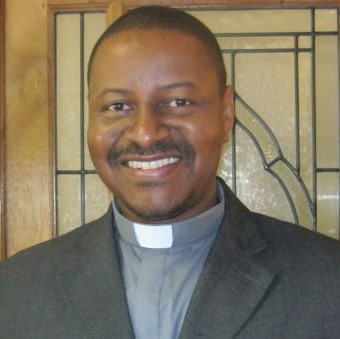 |
Bryn M Maphosa, national overseer, Brethren In Christ Church, South Africa |
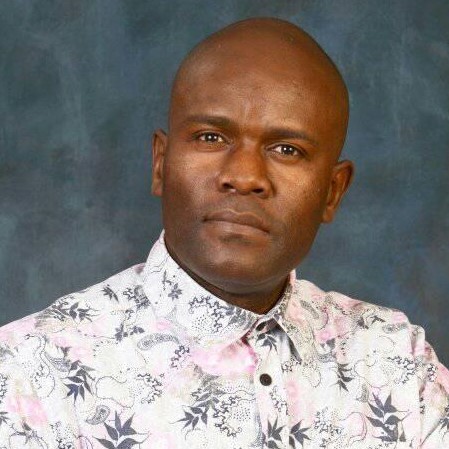 |
Clement Ndlovu, pastor, Brethren In Christ Church, Krugersdorp branch, South Africa |
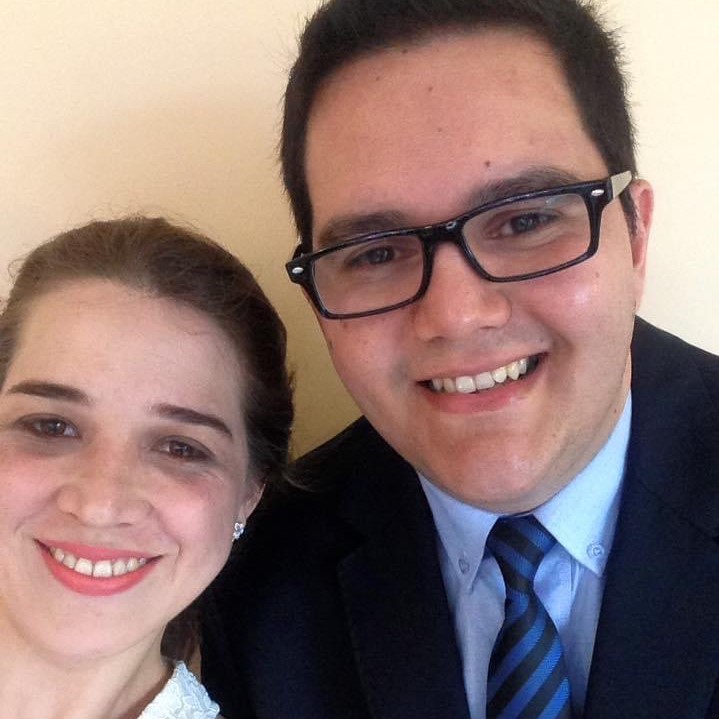 |
Alba and David Irala, youth pastors, Iglesia Cristiana de la Paz, Mennonite Brethren church, Asuncion, Paraguay |
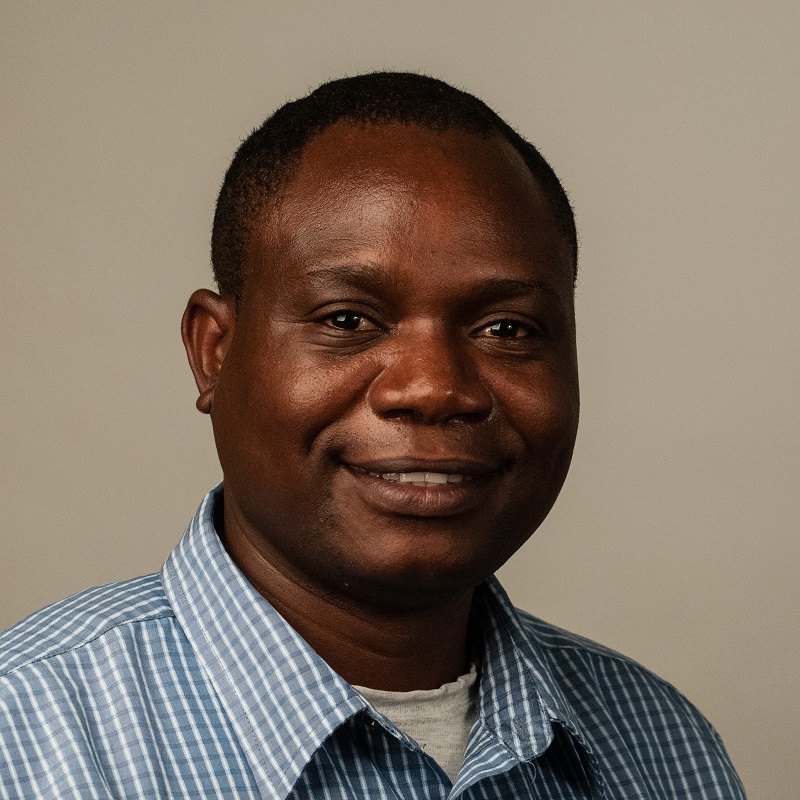 |
Francis Kamoto, bishop, BIC Church, Zimbabwe |
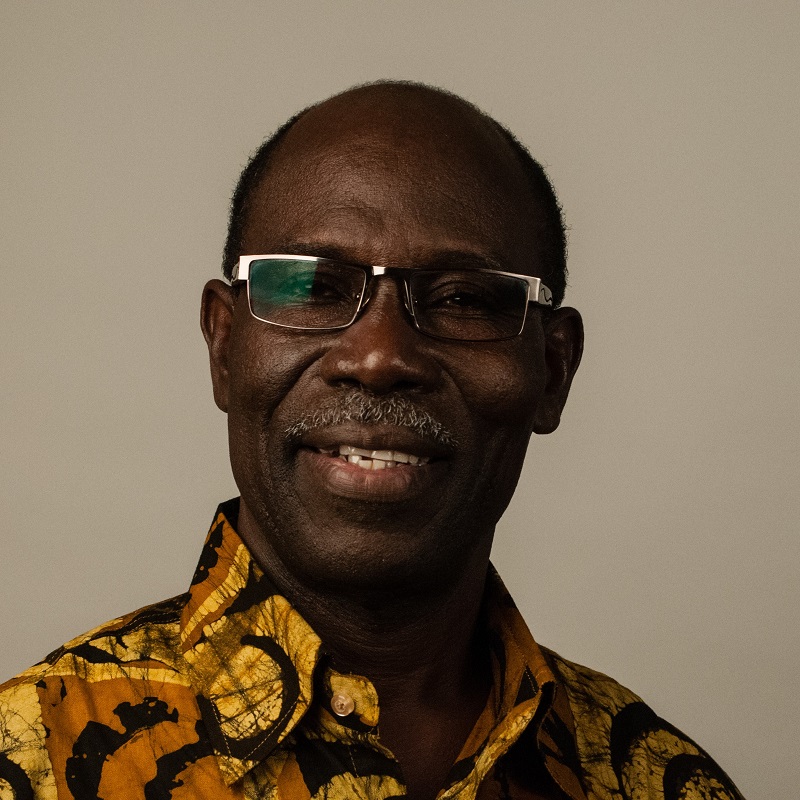 |
Siaka Traoré Traoré, pastor, Eglise Evangelique Mennonite du Burkina Faso |
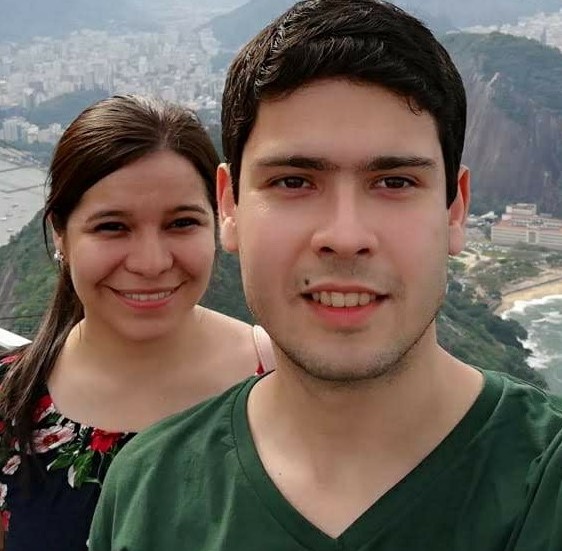 |
Sergio and Paula Mendoza, youth pastors, Sinai Mennonite Brethren Church, San Lorenzo, Paraguay |
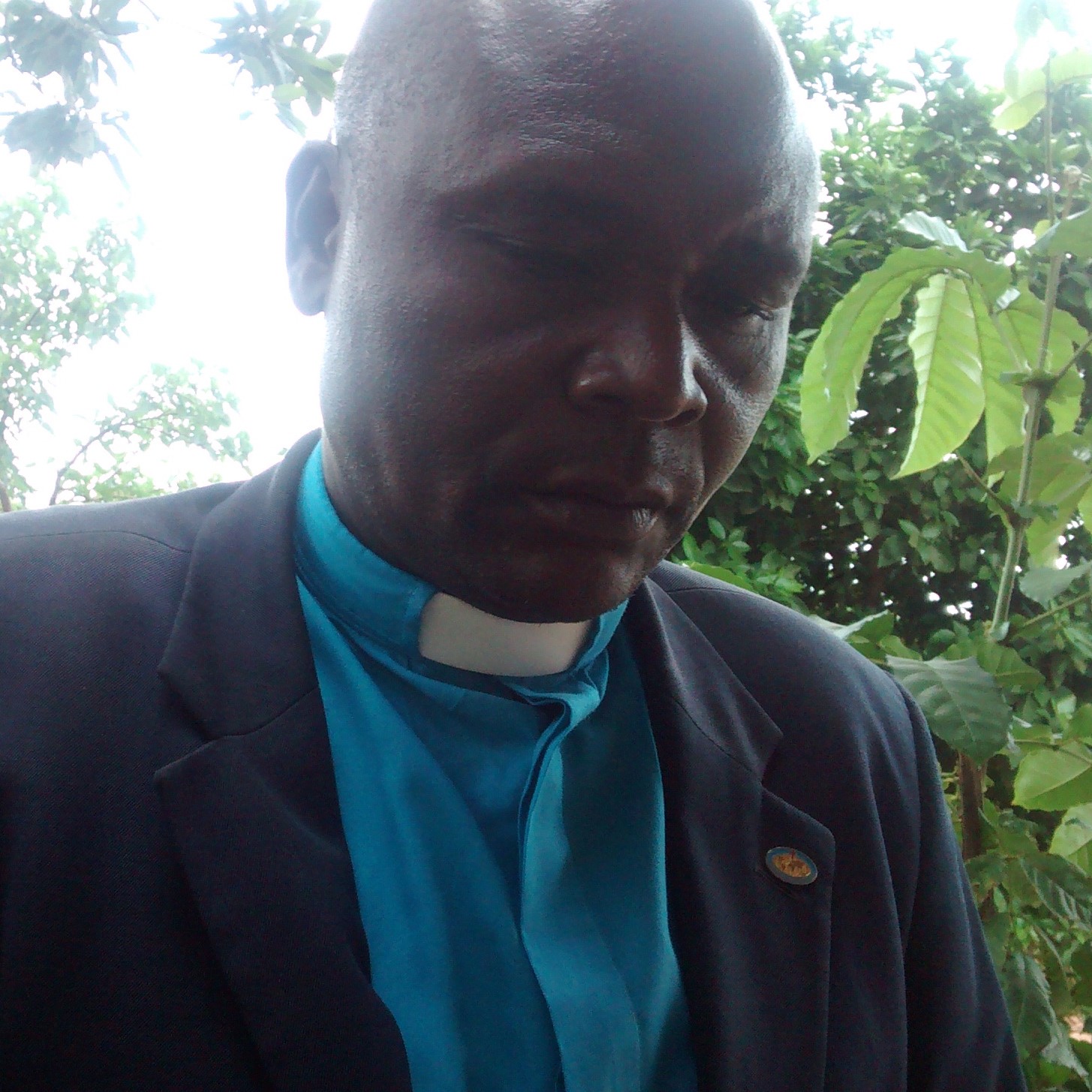 |
Nkunda John Bosco, pastor, Mennonite Church Uganda |
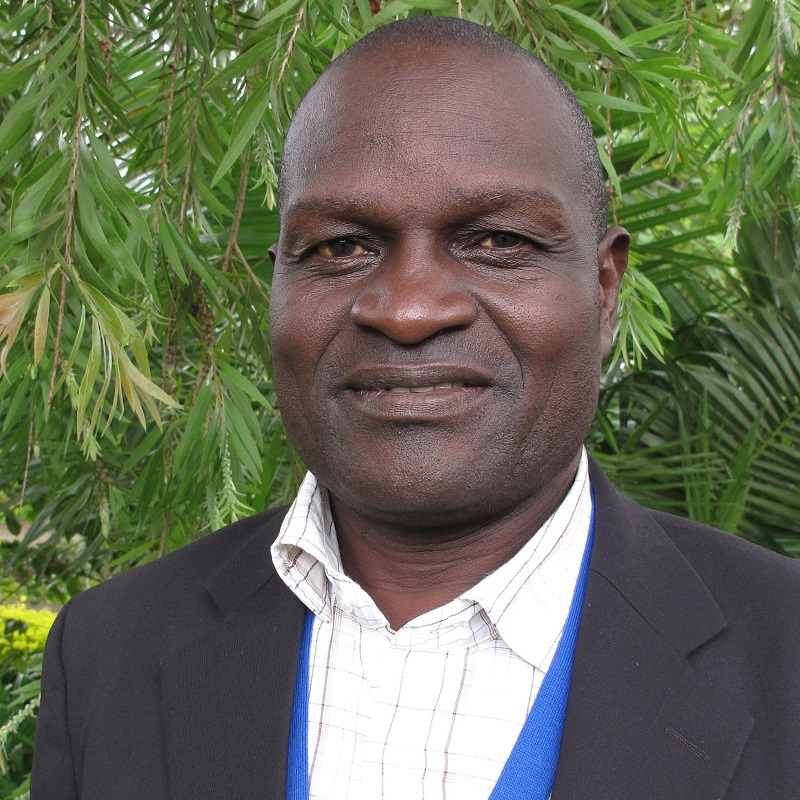 |
Bishop Okoth Simon Onyango, Mennonite Church Uganda |
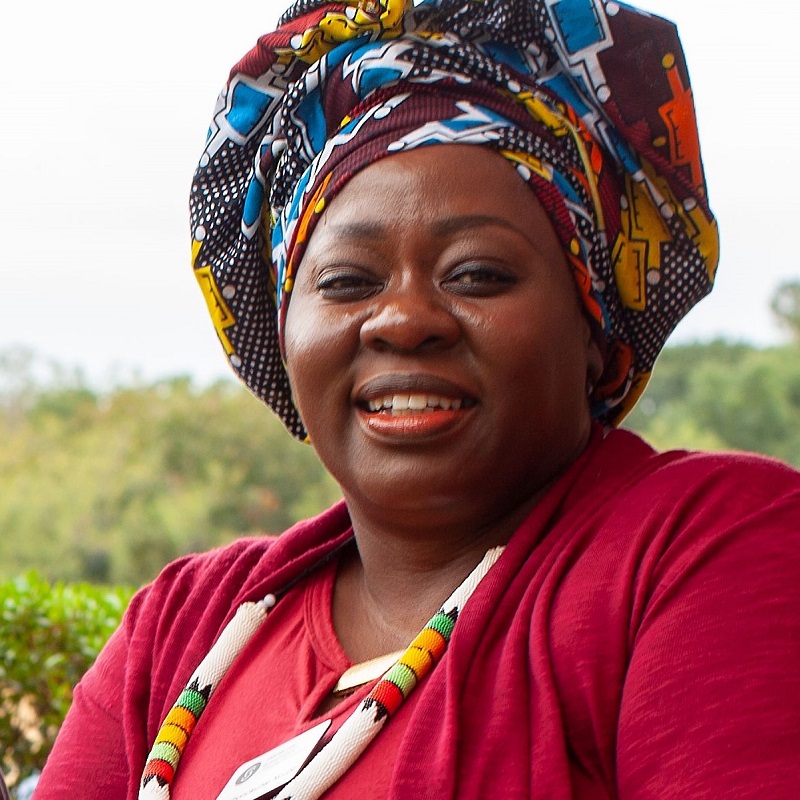 |
Sibonokuhle Ncube, theology student, BIC Church Zimbabwe |
This article first appeared in Courier/Correo/Courrier October 2020.
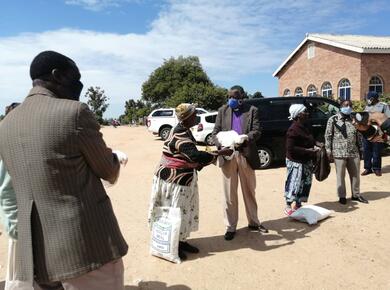

Join the Conversation on Social Media
FacebookTwitterInstagramFlickrYouTube